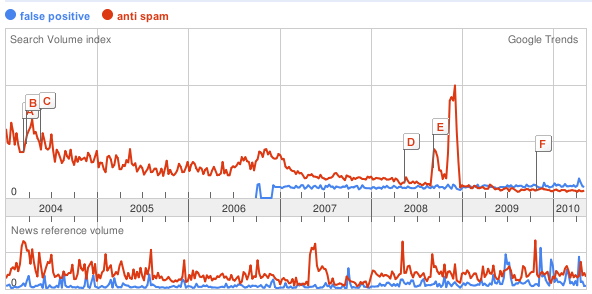I have been thinking and writing about email for business for many months now and it occurred to me that Brockmann & Company should define spam.
As I see it, spam is email that is inappropriate, anonymous, bulk and irrelevant.
Inappropriate – email that invites women to improve erectile dysfunction, email that invites children to view pornography, email inviting muslims to convert to Christianity. These are inappropriate.
Anonymous – email requires every email to be sent from (or assumed to be sent from) a well-formed email address. There is no anonymity when it comes to email. Because of the trust assumed by the original sendmail program, email addresses can be easily forged. The context of a conversation can provide clues to users as to whether this email is a forgery or not. Context like the last four digits of your credit card, a practice used by Citibank when communicating with customers in email.
Irrelevant – similar to inappropriate, irrelevant may also describe the nonsense prose often used by spammers to poison the spam filter. Read more about the limitations of spam filters in our report, The Spam Index Report.
Bulk – to be effective, spam must be sent to thousands of email accounts in order to make the tiny fraction of users that will respond to the spam a worthwhile quantity.









